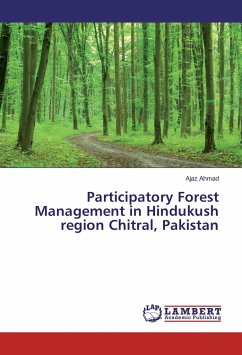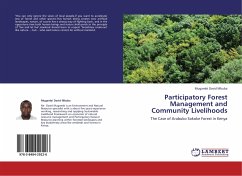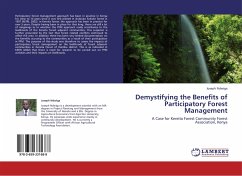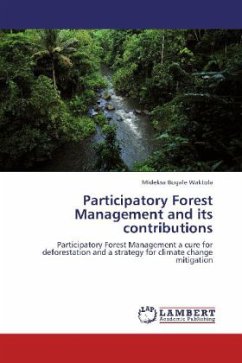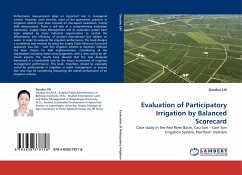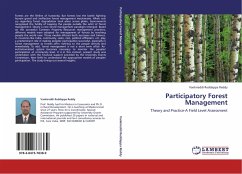
Participatory Forest Management
Theory and Practice-A Field Level Assessment
Versandkostenfrei!
Versandfertig in 6-10 Tagen
39,99 €
inkl. MwSt.

PAYBACK Punkte
20 °P sammeln!
Forests are the lifeline of humanity. But forests lost the battle fighting human greed and ineffective forest management mechanisms. When war cry regarding forest degradation took place across globe, Governments recognized the futility of keeping the people outside the orbit of forest management. Slowly a new forest management paradigm emerged. Based on the successful Common Property Resources management practices, different models were adopted for management of forests by involving people the world over. Those models offered both successes and failures. In countries like India, community, cas...
Forests are the lifeline of humanity. But forests lost the battle fighting human greed and ineffective forest management mechanisms. When war cry regarding forest degradation took place across globe, Governments recognized the futility of keeping the people outside the orbit of forest management. Slowly a new forest management paradigm emerged. Based on the successful Common Property Resources management practices, different models were adopted for management of forests by involving people the world over. Those models offered both successes and failures. In countries like India, community, caste, clan, political affiliation, etc. play a predominant role in making peoples' participation successful, especially in forest management as forests offer nothing to the people directly and immediately. To add, forest management is not a short term affair. An institutionalized system becomes necessary to monitor the peoples' participation at community level. It is in this context, present study was undertaken with the financial support provided by the University Grants Commission, New Delhi to understand the appropriate models of peoples' participation. The study brings out several insights.



